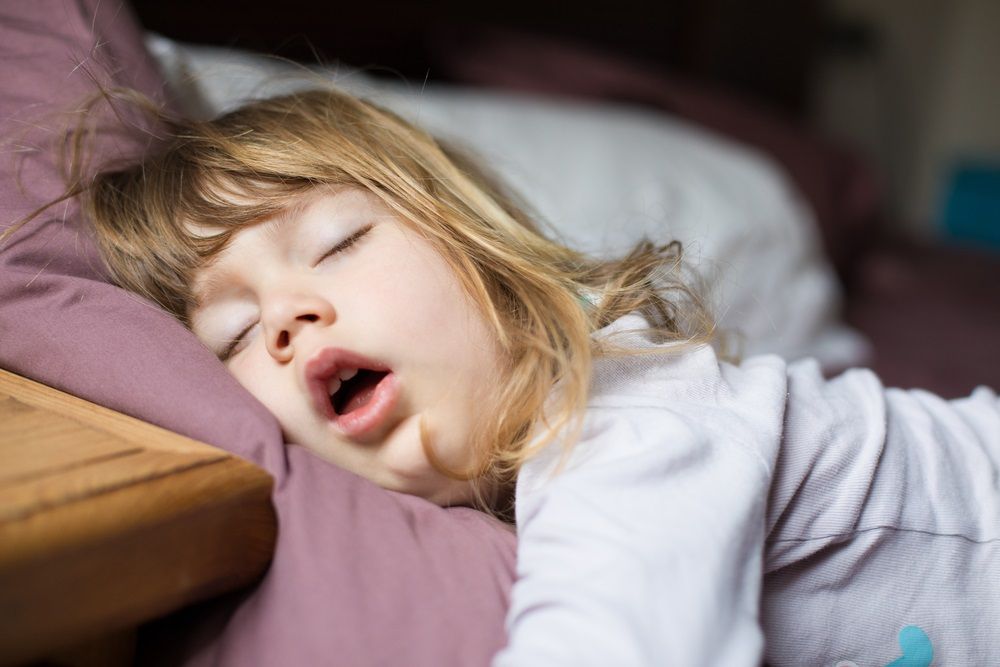If you find that your child is snoring at night, it may not be a big deal, but there are some signs that snoring is a problem. About 12 percent of children could snore most nights, and it’s called habitual snoring. Asthma, allergies, an overly dry room, dehydration, illness, or irregular sleep habits can cause snoring. However, up to 5 percent of kids can also have sleep apnea, and a snoring child would be a symptom of this. Sleep apnea is a serious condition and it can affect the child’s growth, cognitive and emotional development, and heart. If a child does have sleep apnea, a doctor should evaluate him or her if you notice these certain signs.
1. Sweating at Nighttime Frequently
Frequently sweating at nighttime is due to an over activity of the sympathetic nervous system during sleep. It is triggered by low oxygen levels and efforts of trying to breathe when the airway is closed.
2. Inward Movement of Breastbone and Rib Cage When Breathing
This is due to the same efforts that cause the sweating at nighttime and trying to breathe with a closed airway.
3. Unusual Positions While Sleeping
For a snoring child that does have sleep apnea, unusual positions while they are sleeping can usually be a sign. A common position is hyperactive extension of the neck, because it can help keep the airway open.
4. Headaches in the Morning
If a child is complaining that his or her head is hurting in the morning, this can be a sign of elevated blood pressure and low oxygen while they are sleeping.
5. Bedwetting
Bedwetting every once in a while isn’t a clue, but if the bedwetting is chronic, it could be a problem. There are studies that show that a high number of children suffering from sleep apnea are also bedwetters. After treatment, children that are chronic bedwetters saw improvement.
6. Inattentiveness in School
Oftentimes those who are suffering from sleep apnea get diagnosed with ADHD. If snoring is also happening, then talking with the doctor about other symptoms can avoid unnecessary medications that are used to treat ADHD.
7. Night Terrors or Sleepwalking
A study that was completed at Stanford University showed that a majority of children who are sleepwalking with sleep apnea stopped after treatment. It’s not known why sleep apnea causes sleepwalking or night terrors, but many children with the condition do suffer from this.
8. Pediatric Hypertension
Children who have hypertension should also be screened for sleep apnea, as hypertension can be a symptom.
9. Down Syndrome
Anywhere from 40 to 70 percent of children with Down syndrome can have sleep apnea. When sleep apnea is left untreated, it can lead to mental and health development issues, especially for those who have Down syndrome.
10. Obesity
About 30 percent of children who are obese can also have sleep apnea. Untreated sleep apnea also already increases the higher chances of developing hypertension, metabolic disorders, and insulin resistance. Untreated sleep apnea can also hinder a child’s ability to lose weight.
If you notice signs that snoring is a problem, then talk to your child’s doctor.


